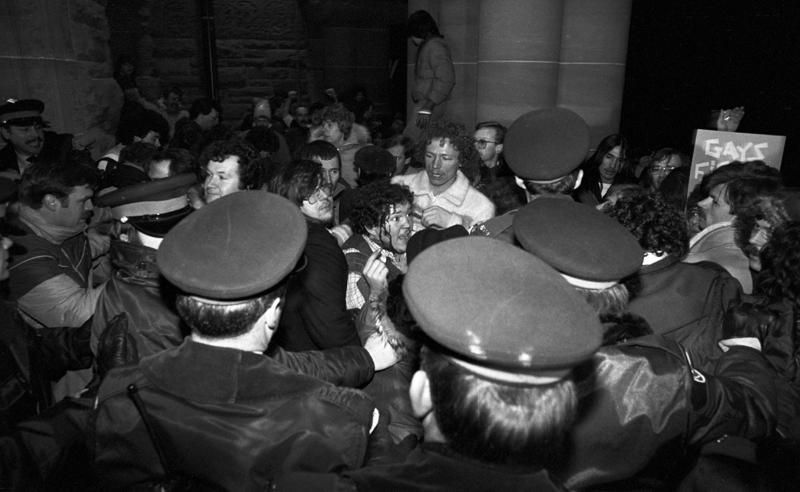Over 6,000 people are still in Canadian police databases because they were convicted of the now-extinct crimes of gross indecency and buggery, RCMP data shows.

The oldest conviction in the data was in October 1939, but there were over 200 a year until 1988, the year consensual anal sex was legalized and the offence of buggery removed from the Criminal Code.
Consensual sexual contact between gay men, other than anal sex, was legalized in 1969. (It was during a 1967 debate on the same topic that then-Justice Minister Pierre Trudeau made his much-quoted comment that “there is no place for the state in the bedrooms of the nation.”)
While modern sexual assault law is focused on the presence or absence of consent, previous generations banned categories of sexual acts deemed immoral, says retired Laurentian University professor Gary Kinsman. Kinsman is an expert on Canadian gay and lesbian history.
“What was criminalized was same-gender sexual acts themselves,” he explains. “There was no real investigation of the context. Consent was not a legal question – you could not consent.”
Kinsman advocates a pardon for everybody convicted of buggery or gross indecency before 1988.
“My investigation shows that the vast majority of those were consensual in character, or you’re not going to be able to find out the exact character of what took place, because what was being criminalized was the sexual acts per se.”
“My argument is that unless there are clear indications that there was violence and coercion involved, I think a blanket pardon is in order for all of the people who were charged under these offences during this period of time.”

Get daily National news
Global News obtained data from the RCMP showing the dates of conviction of people found guilty of buggery or gross indecency in the Canadian Police Information Centre, a national database available to police, and the Pardoned Sex Offender Registry. That is searched when someone needs a police check to work with vulnerable people, such as children or medical patients. It shows conviction records for 6,157 people.
The data was released under access-to-information laws.
READ MORE: Liberals to review decades-old convictions of gay men under defunct laws
Not everybody in the data is necessarily still alive.
Convictions peak in the mid-1980s, which Kinsman attributes to police raids on bathhouses in the period.
“It’s really important to point out that the criminalization of consensual homosexual sexual activity certainly didn’t stop in 1969 – in some ways it actually magnifies, and gets increased in the 1970s and 1980s,” he explains. “That’s what you’re capturing in some of the statistics that you have.”
On Sunday, the Canadian Press reported that the federal government planned to review all convictions for buggery and gross indecency. CP reported that Ottawa planned to pardon Everett Klippert, who spent years in prison in indefinite detention before his 1971 release after being convicted of consensual sexual acts between men.
The Klippert case had an important role in the 1969 reform, but Klippert himself languished in prison for two years after the crimes he was convicted of ceased to exist.
One issue that a blanket pardon would have to deal with is that not all convictions for buggery and gross indecency related to consensual acts. (The charges are still occasionally laid in modern Canada in relation to historic, non-consensual sex offences.)
“Clearly there were offences that people were charged with, and they may have been charged in combination with gross indecency and buggery, where there would be clear indications of lack of consent, or coercion or abuse,” Kinsman says. “I think the pardon is much more of a recognition that the state policy of criminalization of homosexual sexual activities was wrong.”
A campaign is underway in Britain to pardon 49,000 men convicted in the past for gross indecency. The movement is supported by the family of Alan Turing, a gifted mathematician who had a crucial role in breaking Nazi codes during the Second World War. Turing died in an apparent suicide after his 1952 conviction for gross indecency.








Comments